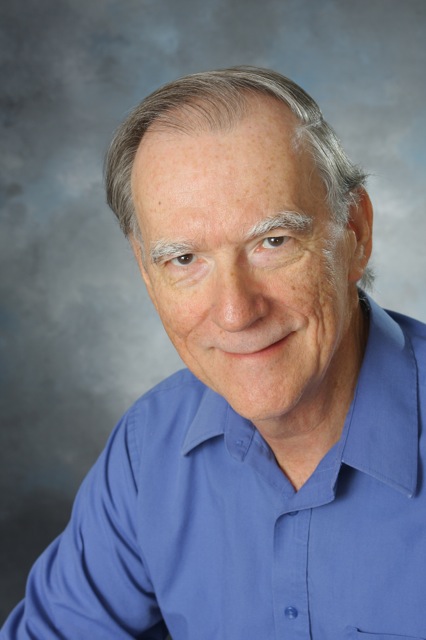Paul Lloyd has had a successful marketing business for many years and at the same time has been a prolific writer. Today, he reveals the secrets to becoming a successful writer.
Alan: Today we are talking with Paul R. Lloyd. Someone that has had a successful career in marketing and at the same time been a successful writer. Today we’re going to learn his insights into writing. Paul, thanks for talking to us.
Paul: Glad to be here.
Alan: Let’s get right into it. Why did you start writing?
Paul: It started back in grade school and continued into high school and even the army. I’ve always been a writer and an avid reader. I was an English major in college. I read a lot of genres, both fiction and non-fiction. I began my writing career as a reporter for a daily newspaper. I worked for international corporations for seven years before I started my own marketing business.
Alan: How does one get started writing?
Paul: Start out writing a blog. It is less intimidating than to attempt writing a novel or a non-fiction book from scratch. Later, you can reformat the blog posts into an article or an ebook.
Alan: When was your first book published?
Paul: 2011. I wrote one in the 1970s, but it wasn’t published.
Alan: Now you have written fiction and non-fiction, correct?
Paul: Yes. I’ve written 3 non-fiction books and 6 novels. I have 3 more novels in-progress. I also have a blog and other writings.
Alan: What type of fiction do you write?
Paul: I was drawn to the type of horror fiction that Stephen King writes, so I write horror fiction with a twist of humor. I call it “scary humor.” My background includes poetry, so my word play has a poetic feel to it.
Alan: What lessons have you learned from writing? If you were to start writing now, is there anything you would do any differently?
Paul: If I was starting out writing today, I’d do more research in the genre I wanted to write in. Also, be aware of who you are as a fiction writer. You write the way that feels comfortable to you. Stephen King has his style, John Grisham his style, Patricia Cornwell her style. My style is noir but with an upbeat, positive message at the end. As I was saying earlier, I like to play with words in a poetic way and spice the scary parts with humor. My gift includes writing for emotion so readers should expect to laugh and cry while staying alert for the sound of bumps in the night.
Be aware of what the marketplace wants. While writing gives great enjoyment and is very fulfilling, selling of books brings great pleasure as well. Understand what your readers want.
Alan: You’ve been running a business for many years; how did you find time to write?
Paul: It takes daily commitment to move a book forward. It is too easy to put it aside for a week of two then having to spend hours figuring out where you were, what you want to say next. Just start with a daily commitment of 15 minutes. That first 15 minutes will be tough, but it will get easier and easier as you get into the daily flow. When you’re writing, especially fiction, you are telling a story, so you need to know how to tell a good story. The writing will naturally expand to 20-45 minutes a day. A good pace to have is an hour a day of writing.
Alan: What do you feel is your best book and why?
Paul: Steel Pennies. It’s a thriller set in 1960 in a small industrial town in Pennsylvania. The story takes place in a mixed race working class neighborhood during the early days of the civil rights movement so readers get a feel for how the young people interacted in that kind of environment. The story features racial tension, but is primarily a love story set in the midst of murder and mayhem. The main characters, a small group of teens, have to figure out who the killer is before they are picked off one-by-one. I’ve had several readers reach out to me, but none have said they were able to solve the murder before the end of the book. It’s great to hear from readers.
Alan: What was the most difficult task on your first book?
Paul: In writing a novel, I know the beginning, the end and the title. The challenge is getting from point A to point B. I enjoy the writing part more than the editing, but of course, that is part of the process as well. An editor is an essential part of the book writing process, but I’ve been a professional writer since 1974, so I do the editing myself these days. I’m also part of a writer’s group which is a big help in that I have a critique from a group of people. Getting the perspective from several people makes for a better book.
Alan: What advice would you give a first-time writer?
Paul: Write every day. Read about writers and what they have went through to succeed. Get to know your writing heroes. When you write, have your work evaluated by a professional editor that you pay. They have the background to provide valuable feedback. Also, finish the novel before editing the story. If you start editing as you go, you will be stuck halfway through the process and potentially give up. If you edit as you go. you may find that you rewrote chapter 2 six times and you end up throwing it away the chapter, because it doesn’t fit with the rest of the story.
Alan: How do you come up with new story ideas?
Paul: Just by going through life, reading and thinking, I constantly come up with ideas for stories. I make sure I capture them for future reference. As long as I live, I will continue to write. I love it!
Alan: What is next for you?
Paul: The fourth book in my Snpgrdxz (pronounced Snip-grid-ix) time travel series. More to come on it.
Alan: Looking forward to it. Thanks, Paul for your insights. We really appreciate it.



 Dr. Russ Riendeau is a successful entrepreneur, national speaker and award-winning executive search professional. He has turned his ideas, passions and talents into million-dollar business with ideas that have enriched the lives of thousands, as well as a rewarding personal and professional life. Russ is also the creator of the Rusty & Pogo comic series. His ideas, writings and art work have appeared in thousands of media outlets including, TEDx Talks, The Wall Street Journal, Wall Street Journal Radio, ABC News, CNBC, MSNBC, CNN, Boston Globe, Artprize 2014, Sales & Marketing Magazine, Training Magazine and CIO Magazine.
Dr. Russ Riendeau is a successful entrepreneur, national speaker and award-winning executive search professional. He has turned his ideas, passions and talents into million-dollar business with ideas that have enriched the lives of thousands, as well as a rewarding personal and professional life. Russ is also the creator of the Rusty & Pogo comic series. His ideas, writings and art work have appeared in thousands of media outlets including, TEDx Talks, The Wall Street Journal, Wall Street Journal Radio, ABC News, CNBC, MSNBC, CNN, Boston Globe, Artprize 2014, Sales & Marketing Magazine, Training Magazine and CIO Magazine.